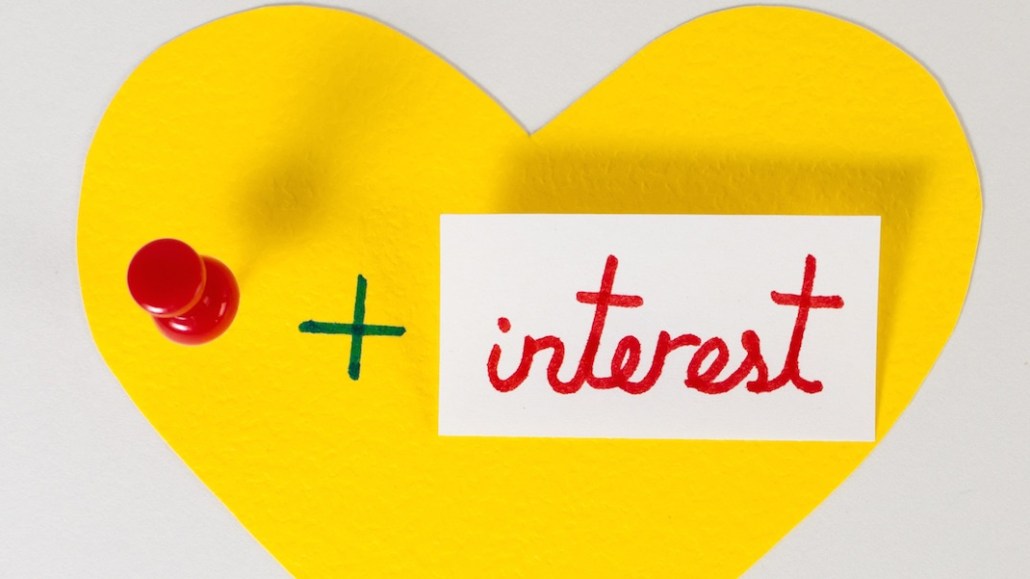Secure your place at the Digiday Media Buying Summit in Nashville, March 2-4
Pinterest testing new co-sold, revenue-share ad model for publishers with Tastemade

Pinterest is testing a new advertising model on the social media platform that will split revenue derived from a unique co-sales arrangement with publishers that will heavily feature video ads. But unlike previous video campaigns on the platform, high performing publishers will be creating the videos in their own style.
Currently in an experimental phase, Tastemade is the first publisher to sign on and the brand that is funding the early trial is corn chip snack Fritos.
The model will rely on the first-party data that Pinterest can provide about its users as well as insights into trending topics and brands to determine what content might perform well on the platform. The publisher is then responsible for creating content — particularly video content.
This first campaign with Fritos includes several recipe videos including one for a Frito taco casserole and sweet and salty Fritos cookies. They feature the overhead shot, “hand-in-pan” style videos that Tastemade uses frequently, with Tastemade’s and Fritos’ logos in the bottom corner. The pins are published to Fritos’ page on Pinterest but are promoted throughout the platform.
Neither Tastemade or Pinterest would disclose what the revenue split is, but both companies said the commission rates were competitive with industry norms, with the publisher earning less than the platform.
Tastemade currently reaches 87 million viewers per month on the platform, according to Meredith Guerriero, U.S. head of partnerships at Pinterest. And the publisher has received over two billion views on video pins since it first started posting videos two years ago, said Jeff Imberman, Tastemade’s head of sales and brand partnerships.
The publisher has also run campaigns on the platform in the past that allowed it to keep all of the earned revenue. But Imberman said that the appeal of entering into a revenue-share model was that Pinterest “knows more about its users than we could ever hope to know.”
“Purpose built platforms like Pinterest have a treasure trove of knowledge about their users about how they react on that platform,” said Imberman. “And how someone acts on Pinterest is different than how they act on Twitter or Facebook or other platforms.”
Imberman said that Tastemade and Pinterest both had relationships Fritos as an advertiser. But Pinterest noted that the brand had an increase in searches on the platform, which made it seem like the right fit for this experiment, in particular because it was already organically trending.
Guerriero said that from May 2019 to May 2020, searches on Pinterest for “taco bake with Fritos” had increased by nearly 400% year-over-year, while “Frito taco casserole” increase by 96% and “comfort food recipes” had increased by 165%. Beyond that, recipe searches in general saw a significant increase during the pandemic as people began cooking at home more.
Pinterest can also “drive performance by pulling levers” that Tastemade on its own does not have access to, he said. However, Tastemade can provide creative capabilities that Pinterest “as an organization is not skilled in,” such as video production, Imberman said.
So far, the videos are outpacing the expected benchmarks, according to Guerriero. In the week since the pins were first posted they have reached over 6.7 million unique users and have received over 37,000 saves to people’s accounts—two times the platform’s average save rate on pins.
There is no definitive timeline for rolling out this ad model to other publishing partners, said Guerriero, who added though that there are plans to extend it beyond the food category into the lifestyle category.
According to eMarketer, Pinterest surpassed Snapchat as the third most popular social media platform in the U.S. for 2019, with an estimated total of about 86 million users, compared to Snapchat’s expected 83.1 million.
Pinterest earned over $1 billion last year in total revenue and is expecting to hit $1.5 billion this year, according to MarketWatch.
And with the Facebook boycott gaining momentum, Benjamin Arnold, a managing director at social media agency We Are Social said brands are looking to shift their media budgets to other platforms, though Twitter, YouTube and others are also coming under pressure to change how they benefit from hate speech as well.
“Pinterest looks set to be a major beneficiary [of the Facebook boycott] and new advertising features, such as the co-sell model, will only further increase its attractiveness to marketers,” Arnold said.
More in Media

From feeds to streets: How mega influencer Haley Baylee is diversifying beyond platform algorithms
Kalil is partnering with LinkNYC to take her social media content into the real world and the streets of NYC.

‘A brand trip’: How the creator economy showed up at this year’s Super Bowl
Super Bowl 2026 had more on-the-ground brand activations and creator participation than ever, showcasing how it’s become a massive IRL moment for the creator economy.

Media Briefing: Turning scraped content into paid assets — Amazon and Microsoft build AI marketplaces
Amazon plans an AI content marketplace to join Microsoft’s efforts and pay publishers — but it relies on AI com stop scraping for free.








